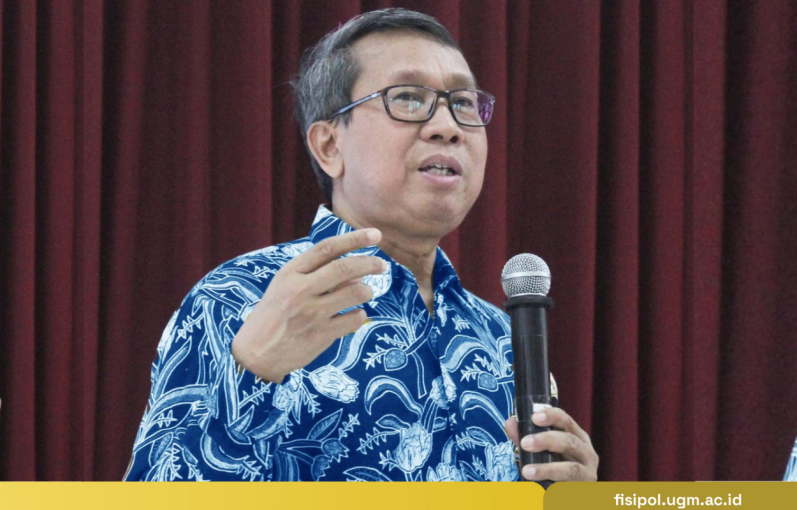
Yogyakarta, 24 July 2025 — The tragic death of Arya Daru Pangayunan (39), a young diplomat of Indonesia’s Ministry of Foreign Affairs, whose body was found at a boarding house in Menteng, Central Jakarta, has drawn wide public attention. This heartbreaking incident also sparked concern among academics, including Prof. Dr. Dafri Agussalim, a Professor of International Relations at Universitas Gadjah Mada.
According to Prof. Dafri, the death of an active diplomat is not merely a personal loss, but a moment for national reflection—particularly on how the state protects its diplomats. In an interview, he stressed the importance of this case being a wake-up call for the Ministry of Foreign Affairs and other state institutions. He believes that employee protection should not only cover physical health but also psychological safety and economic well-being.
“State institutions must implement a comprehensive protection system for their personnel. First, there must be safeguards for physical security—especially for those working in sensitive areas. Second, psychological safety is equally crucial, through systems that provide mental health support and early detection of work-related stress,” Prof. Dafri explained.
While Arya’s position may not have significantly influenced Indonesia’s foreign policy due to his mid-level rank, Prof. Dafri argued that this incident remains serious and warrants immediate attention from relevant institutions. He emphasized that this should be a collective lesson for all government agencies—not just the Foreign Ministry—to improve internal protection systems for their employees.
Prof. Dafri also highlighted the importance of transparency and credibility in the legal process. Speculation continues to swirl in the public domain, ranging from possible suicide to potential links with human trafficking networks. He warned that the lack of clear and reliable information only adds to the burden on the victim’s family and erodes public trust in law enforcement institutions.
“Public anxiety grows when there’s no clear and credible source of information. That’s why it’s essential for law enforcement and government institutions to quickly disclose the facts using transparent and trustworthy procedures,” he said.
He further stressed that in a democratic country, credible law enforcement is a vital sign of the state’s presence and accountability to its citizens—especially in cases involving institutional integrity and the welfare of grieving families.
Prof. Dafri hopes that the Foreign Ministry will take this moment as an opportunity to reform its internal protection systems and encourage cross-sectoral collaboration to prioritize the safety and well-being of diplomatic personnel.
(/noor)
